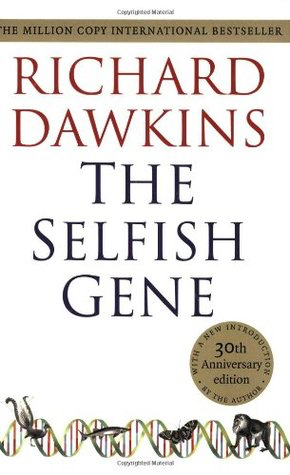
Richard Dawkins mentioned his concern about people’s misjudgement of the book because of its title. Unfortunately, I was one such plonker. This book sat on my bookshelf for many years. I did not want to touch it because I shallowly inferred from the title that the book is about finding justification in biology for selfishness and moral degradation (if I may, as a far-fetched extension). Reading it might shatter my strongly held view that we human should promote altruism and not be selfish. I opened it one day recently, not remembering when and why exactly. It has proved to be a fascinating read and has demonstrated my pre-assumption to be completely wrong. Dawkins mentioned in the book that, retrospectively speaking, he should have named the book The Immortal Gene instead. I would have benefited from this book many years earlier if that were the title. The fault is all mine though. I learned the lesson to not make the verdict based on the title alone.
A few thoughts occupied my mind while reading this book. There is no answer applicable to us as a group. I think each individual would have one’s own opinion. Also I would like to point out that I am not a biologist at all, merely one who is interested in the subject.
We are the manifestation of our genes to certain extent. I understand gene survival theory as that we maximise the chance of prolonging the existence of any given gene by producing and bringing up offsprings, or helping to increase the chance of survival of that gene as carried by our family members. Last year, when my father was in a coma and in imminent danger for a lengthy period, I, against all my scientific and atheist mind, was praying madly with uttermost sincerity that God would let me give up 30 years of my lifespan in exchange for 30 more years for him, or an even better deal if God is cruel and unjust, 30 years only for 10 years. It was not an attempt to preserve my genes, because it does not propagate back to prior generations at certain ages. It was not altruism either. Did I want him to live because I could not cope with the possibility of losing him? Or, did I want him to live because I truly think he could enjoy many more years of life that would be more relaxing and peaceful than one at working age, despite the prospect of being severely disabled? Looking back, I dismissed the second question fiercely and wanted father to be with us regardless of the medical conditions. I could not cope with the future of living in endless regrets that I have hardly looked after him. Damn me that I have not taken him travel around the world as I wished! Curse me that I have not done X, Y, Z for him! A very long list of unfulfilled wishes. To cope with the fear of not having a chance to give back, I had a belief that he must live. That was a strong and very selfish belief. On one hand, I find this book very convincing. On the other hand, we are so miniscule in the biology evolution, our thoughts and behaviors are greatly influenced by other factors besides the genes. This kind of non-gene-survival related influence appeared to be more dominating than the survival theory in the relatively constrained timeframe.
I am particularly drawn to Dawkins’ meme theory and more keen to find out more about further research on memes. Meme is the name given by Dawkins for a new kind of replicator. “It conveys the idea of a cultural transmission, or, a unit of imitation. Examples of memes are tunes, ideas, catch-phrases, clothes fashions, ways of making pots or of building arches. Just as genes propagate themselves in the gene pool by leaping from body to body via sperms or eggs, so memes propagate themselves in the meme pool by leaping from brain to brain via a process which, in the broad sense, can be called imitation.”
The following paragraph from the book gives us great hope of the legacy we could create in our very trivial and limited lifetime in the long evolution river:
When we die there are two things we can leave behind us: genes and memes. We were built as gene machines, created to pass on our genes. But that aspect of us will be forgotten in three generations. Your child, even your grandchild, may bear a resemblance to you, perhaps in facial features, in a talent for music, in the colour of her hair. But as each generation passes, the contribution of your genes is halved. It does not take long to reach negligible proportions. Our genes may be immortal but the collection of genes that is any one of us is bound to crumble away. Elizabeth II is a direct descendant of William the Conqueror. Yet it is quite probable that she bears not a single one of the old king’s genes. We should not seek immortality in reproduction. But if you contribute to the world’s culture, if you have a good idea, compose a tune, invent a sparking plug, write a poem, it may live on, intact, long after your genes have dissolved in the common pool. Socrates may or may not have a gene or two alive in the world today, as G. C. Williams has remarked, but who cares? The meme complexes of Socrates, Leonardo, Copernicus and Marconi are still going strong.
The end of the first edition was very upbeat and positive: “We are built as gene machines and cultured as meme machines, but we have the power to turn against our creators. We, alone on earth, can rebel against the tyranny of the selfish replicators.”
It is a book well worth reading. Do not let the title stop you.